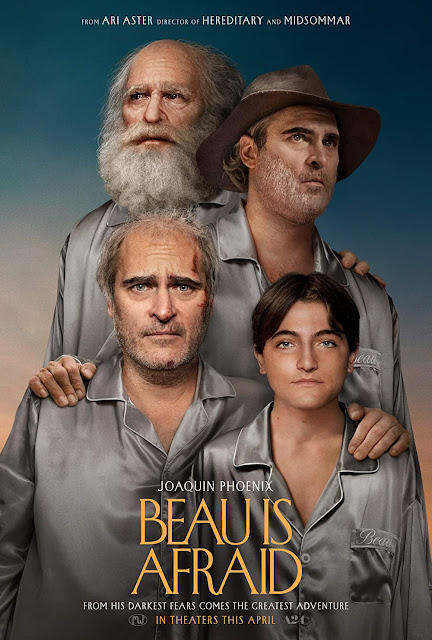This week at Film at
Lincoln Center, I attended a special screening of the new comedy “Dumb Money”, starring
Paul Dano and Pete Davidson.
Synopsis
Major Wall Street players panic when an unpromising stock
suddenly skyrockets.
Story
In 2021, people all across the country are suffering due to
the COVID-19 pandemic – they are suffering due to the sickness and deaths of friends
and family directly caused by the virus and they are also suffering
economically as an indirect cause of the pandemic when many found themselves
out of work. Despite the struggles of
the working class, the wealthy – in particular, those who were Wall Street big shots – have never been living better.
Many of those who found themselves struggling wanted to fight back, but
how?
Enter Keith Gill (Paul Dano). Working for a stockbrokerage company in
Massachusetts, Keith learns how to execute trades on his own and how to read
and interpret the performance of individual companies. He notices that the stock price of one
publicly traded company is rather low, and considers Wall Street’s unfavorable evaluation
of the company unjust; that company is GameStop, a video game store located in
many malls across America. The experts
decide that since most people are playing games by streaming over the Internet,
GameStop will soon turn into a dinosaur.
Keith disagrees and invests his life savings in GameStop, driving its
stock price higher.
Keith goes on social media under the name Roaring Kitty to
share his story and his stock tip with others.
His followers take his advice and begin buying stock in GameStop; some –
including Keith – become millionaires (at least on paper). Others, who could only afford to invest a
fraction of the amount, are able to double or even triple their net worth as
the price of the stock increases ever higher.
Millionaires and billionaires who are supposed to be the financial
experts suddenly find themselves panicking as their corporate assets are dwindling
daily. Will they be able to fight back
and regain their foothold on the economic ladder?
Review
“Dumb Money” is a rollicking new comedy for the Occupy Wall
Street crowd. True, it may seem a little
late in the sense that “The Big Short” came out a number of years ago (also, both are based on true life events), but this may also be considered an update
since it takes place during the height of the COVID-19 pandemic, whereas “The
Big Short” was more recession-focused. Whether
you regard that as detrimental to the quality of the film may depend on which
side of the political spectrum you lean more towards (this movie tends to lean
more to the Bernie Sanders supporters rather than the trickle-down economy theorists).
Although the screenplay follows multiple characters, it isn’t
that terribly difficult to follow the story; part of the reason for that is
because the characters are so uniquely drawn, their individuality stands
out. The other reason is likely due to
the fact that many of those characters are played by stars familiar to the viewing
audience, making it easier to keep track of who’s who and what their piece in
this complicated puzzle is in relation to the rest of the story (as well as
their relationship to each other).
This movie makes clear who the good guys and the bad guys are and why it’s so easy to root for the good guys (or at the very least, root against the bad guys). There are references made to this being the equivalent of The French Revolution, which is a fair comparison since it was about how the middle class held disdain for the high-living aristocracy who forced the lower class to struggle in order to support the ostentatious lifestyle of the despotic ruler Louis XVI. As the saying goes, history rarely repeats itself, but it does frequently rhyme.





















